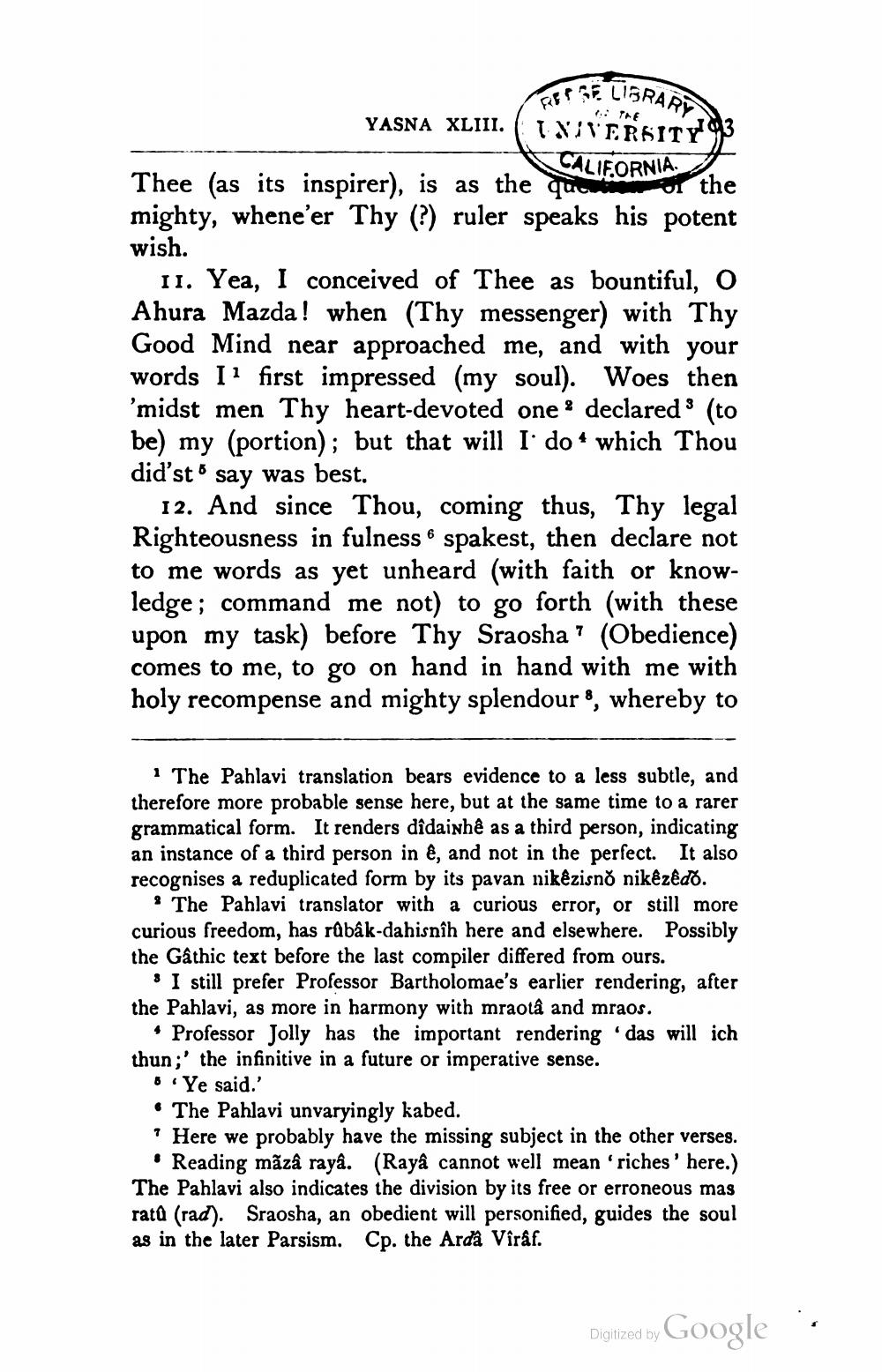________________
PETITBRAAN YASNA XLIII. (IXERSIT03
CALIFORNIA, the
Thee (as its inspirer), is as the questions or the mighty, whene'er Thy (?) ruler speaks his potent wish.
11. Yea, I conceived of Thee as bountiful, O Ahura Mazda! when (Thy messenger) with Thy Good Mind near approached me, and with your words Il first impressed (my soul). Woes then 'midst men Thy heart-devoted ones declared: (to be) my (portion); but that will I do 4 which Thou did'st say was best.
12. And since Thou, coming thus, Thy legal Righteousness in fulness 6 spakest, then declare not to me words as yet unheard (with faith or knowledge; command me not) to go forth (with these upon my task) before Thy Sraosha? (Obedience) comes to me, to go on hand in hand with me with holy recompense and mighty splendouro, whereby to
1 The Pahlavi translation bears evidence to a less subtle, and therefore more probable sense here, but at the same time to a rarer grammatical form. It renders didainhê as a third person, indicating an instance of a third person in e, and not in the perfect. It also recognises a reduplicated form by its pavan nikêzisno nikêzêdo.
* The Pahlavi translator with a curious error, or still more curious freedom, has râbâk-dahisnîh here and elsewhere. Possibly the Gathic text before the last compiler differed from ours.
I still prefer Professor Bartholomae's earlier rendering, after the Pahlavi, as more in harmony with mraotâ and mraos.
• Professor Jolly has the important rendering das will ich thun;' the infinitive in a future or imperative sense.
0 Ye said.' • The Pahlavi unvaryingly kabed.
Here we probably have the missing subject in the other verses. . Reading mãzâ raya. (Rayâ cannot well mean 'riches' here.) The Pahlavi also indicates the division by its free or erroneous mas ratų (rad). Sraosha, an obedient will personified, guides the soul as in the later Parsism. Cp. the Arda Vîråf.
Digitized by Google
se
Digitized by




